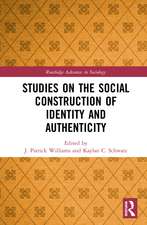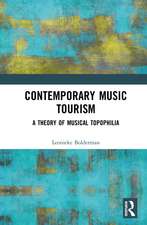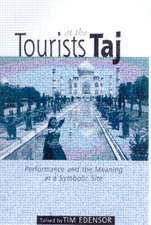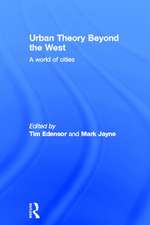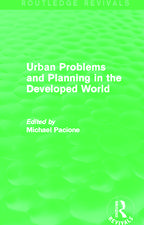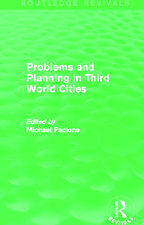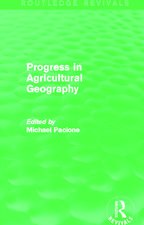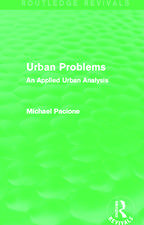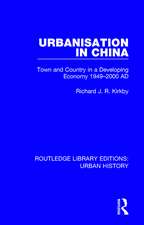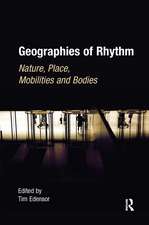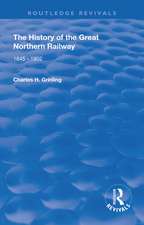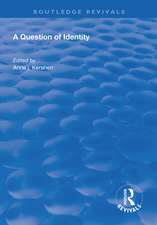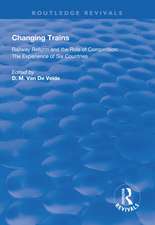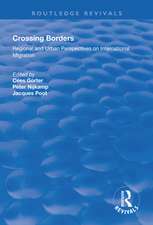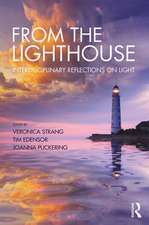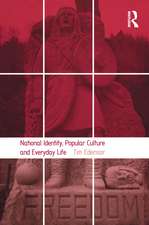Spaces of Vernacular Creativity: Rethinking the Cultural Economy: Routledge Studies in Human Geography
Editat de Tim Edensor, Deborah Leslie, Steve Millington, Norma Rantisien Limba Engleză Hardback – 20 oct 2009
Several important contributions are brought into one volume to examine the geography of locally embedded forms of arts and creative practice. There has been an explosion of interest in both academic and policy circles in the notion of creativity, and its role in economic development and urban regeneration. This book argues for a rethinking of what constitutes creativity, foregrounding non-economic values and practices, and the often marginal and everyday spaces in which creativity takes shape. Drawing on a range of geographic contexts including the U.S., Europe, Canada and Australia, the book explores a diverse array of creative practices ranging from art, music, and design to community gardening and anticapitalist resistance. The book examines working class, ethnic and non-elite forms of creativity, and a variety of creative spaces, including rural areas, suburbs and abandoned areas of the city. The authors argue for a broader and more inclusive conception of what constitutes creative practice, advocating for an approach that foregrounds economies of generosity, conviviality and activism. The book also explores the complexities and nuances that connect the local and the global and finally, the book provides a space for valuing alternative, marginal and displaced knowledges.
Spaces of Vernacular Creativity provides an important contribution to the debates on the creative class and on the role of value of creative knowledge and skills. The book aims to contribute to contemporary academic debates regarding the development of post-industrial economies and the cognitive cultural economy. It will appeal to a wide range of disciplines including, geography, applied art, planning, cultural studies, sociology and urban studies, plus specialised programmes on creativity and cultural industries at Undergraduate and Postgraduate levels.
| Toate formatele și edițiile | Preț | Express |
|---|---|---|
| Paperback (1) | 434.25 lei 6-8 săpt. | |
| Taylor & Francis – 26 noi 2015 | 434.25 lei 6-8 săpt. | |
| Hardback (1) | 1057.89 lei 6-8 săpt. | |
| Taylor & Francis – 20 oct 2009 | 1057.89 lei 6-8 săpt. |
Din seria Routledge Studies in Human Geography
-
 Preț: 332.18 lei
Preț: 332.18 lei -
 Preț: 371.71 lei
Preț: 371.71 lei -
 Preț: 334.09 lei
Preț: 334.09 lei -
 Preț: 341.08 lei
Preț: 341.08 lei - 18%
 Preț: 1057.75 lei
Preț: 1057.75 lei - 18%
 Preț: 1072.71 lei
Preț: 1072.71 lei - 12%
 Preț: 299.87 lei
Preț: 299.87 lei -
 Preț: 490.62 lei
Preț: 490.62 lei - 25%
 Preț: 823.63 lei
Preț: 823.63 lei - 18%
 Preț: 1058.79 lei
Preț: 1058.79 lei - 18%
 Preț: 1054.71 lei
Preț: 1054.71 lei - 13%
 Preț: 296.11 lei
Preț: 296.11 lei - 25%
 Preț: 825.62 lei
Preț: 825.62 lei - 18%
 Preț: 732.06 lei
Preț: 732.06 lei -
 Preț: 414.32 lei
Preț: 414.32 lei - 18%
 Preț: 1062.98 lei
Preț: 1062.98 lei - 18%
 Preț: 702.31 lei
Preț: 702.31 lei - 18%
 Preț: 1057.09 lei
Preț: 1057.09 lei - 18%
 Preț: 1169.66 lei
Preț: 1169.66 lei - 18%
 Preț: 1114.98 lei
Preț: 1114.98 lei -
 Preț: 408.54 lei
Preț: 408.54 lei -
 Preț: 419.50 lei
Preț: 419.50 lei - 28%
 Preț: 823.08 lei
Preț: 823.08 lei -
 Preț: 373.59 lei
Preț: 373.59 lei - 5%
 Preț: 353.14 lei
Preț: 353.14 lei - 18%
 Preț: 1055.06 lei
Preț: 1055.06 lei - 18%
 Preț: 1058.69 lei
Preț: 1058.69 lei - 18%
 Preț: 1065.06 lei
Preț: 1065.06 lei - 18%
 Preț: 1060.87 lei
Preț: 1060.87 lei - 18%
 Preț: 1069.92 lei
Preț: 1069.92 lei -
 Preț: 418.65 lei
Preț: 418.65 lei -
 Preț: 446.58 lei
Preț: 446.58 lei -
 Preț: 408.74 lei
Preț: 408.74 lei -
 Preț: 423.30 lei
Preț: 423.30 lei - 18%
 Preț: 1055.51 lei
Preț: 1055.51 lei - 28%
 Preț: 878.82 lei
Preț: 878.82 lei - 18%
 Preț: 1061.57 lei
Preț: 1061.57 lei - 28%
 Preț: 849.84 lei
Preț: 849.84 lei - 18%
 Preț: 733.11 lei
Preț: 733.11 lei - 25%
 Preț: 855.05 lei
Preț: 855.05 lei - 12%
 Preț: 338.81 lei
Preț: 338.81 lei - 26%
 Preț: 764.20 lei
Preț: 764.20 lei
Preț: 1057.89 lei
Preț vechi: 1290.10 lei
-18% Nou
Puncte Express: 1587
Preț estimativ în valută:
202.42€ • 211.35$ • 167.53£
202.42€ • 211.35$ • 167.53£
Carte tipărită la comandă
Livrare economică 04-18 aprilie
Preluare comenzi: 021 569.72.76
Specificații
ISBN-13: 9780415480956
ISBN-10: 0415480957
Pagini: 272
Ilustrații: 13 b/w images, 4 tables, 10 halftones and 3 line drawings
Dimensiuni: 156 x 234 x 23 mm
Greutate: 0.54 kg
Ediția:1
Editura: Taylor & Francis
Colecția Routledge
Seria Routledge Studies in Human Geography
Locul publicării:Oxford, United Kingdom
ISBN-10: 0415480957
Pagini: 272
Ilustrații: 13 b/w images, 4 tables, 10 halftones and 3 line drawings
Dimensiuni: 156 x 234 x 23 mm
Greutate: 0.54 kg
Ediția:1
Editura: Taylor & Francis
Colecția Routledge
Seria Routledge Studies in Human Geography
Locul publicării:Oxford, United Kingdom
Cuprins
1. Introduction: Rethinking Creativity: Critiquing the Creative Class Thesis (Tim Edensor, Deborah Leslie, Steve Millington and Norma M. Rantisi) Part 1: Governing and Practising Creativity 2. Creative Spaces and the Art of Urban Living (Graeme Evans) 3. Creativity by Design? The Role of Informal Spaces in Creative Production (Rantisi and Leslie) 4. Art goes AWOL (Malcolm Miles) Part 2: Decentering Creativity 5. Creative Suburbs: Cultural ‘Popcorn’ Pioneering in Multi-purpose Spaces (Alison Bain) 6. Beyond Bohemia: Geographies of Everyday Creativity for Musicians in Toronto (Brian J. Hracs) 7. Mapping Vernacular Creativity: the Extent and Diversity of Rural Festivals in Australia (Chris Gibson, Chris Brennan-Horley and Jim Walmsley) 8. Imagining the Spatialities of Music Production: The Co-constitution of Creative Clusters and Networks (Bas Van Heur) 9. Remediating Vernacular Creativity: Photography and Cultural Citizenship in the Flickr Photosharing Network (Jean Burgess) Part 3: Everyday Spaces of Creativity 10. Creativity, Space and Performance: Community Gardening (David Crouch) 11. Growing Places: Community Gardening, Ordinary Creativities and Place-based Regeneration in a Northern English City (Paul Milbourne) 12. Creative Destruction and Critical Creativity: Recent Episodes in the Social Life of Gnomes (Tracey J. Potts) 13. Christmas Lights Displays and the Creative Production of Spaces of Generosity (Edensor and Millington) Part 4: Alternative Creativities 14. Challenge, Change, and Space in Vernacular Cultural Practice (Ann Markusen) 15. The Politics of Creative Performance in Public Space: Towards a Critical Geography of Toronto Case Studies (Heather E. McLean) 16. Creativity Unbound: Cultivating the Generative Power of Non-economic Neighbourhood Spaces (Ava Bromberg)
Notă biografică
Tim Edensor teaches Cultural Geography at MMU. He is author of Tourists at the Taj (1998), National Identity, Popular Culture and Everyday Life (2002) and Industrial Ruins: Space, Aesthetics and Materiality (2005). He is currently researching landscapes of illumination, geographies of rhythm and urban materiality.
Deborah Leslie is an Associate Professor of Geography at the University of Toronto. She is interested in the role of cultural industries in urban economic development, and has done research on a range of industries including design, fashion, art, furniture, advertising and more recently the circus. She has related research interests in the creative city initiatives and urban governance, and in the geography of commodity chains. She is author of a number of publications relating to these topics.
Steve Millington is a Senior Lecturer in Human Geography at Manchester Metropolitan University. His research interests include landscapes of illumination, vernacular creativity and geographies of play. He is co-author of Cosmopolitan Urbanism (2006) and has recently published journal articles in Global Networks and Sociology.
Norma M. Rantisi is an Associate Professor in the Department of Geography, Planning & Environment at Concordia University (Canada). She is author and co-author of numerous articles on the themes of fashion design, the cultural economy and policies governing design in urban settings. She has co-edited two special journal issues: one for Environment and Planning A on the creative economy and one for The Journal of Economic Geography on relational economic geography.
Deborah Leslie is an Associate Professor of Geography at the University of Toronto. She is interested in the role of cultural industries in urban economic development, and has done research on a range of industries including design, fashion, art, furniture, advertising and more recently the circus. She has related research interests in the creative city initiatives and urban governance, and in the geography of commodity chains. She is author of a number of publications relating to these topics.
Steve Millington is a Senior Lecturer in Human Geography at Manchester Metropolitan University. His research interests include landscapes of illumination, vernacular creativity and geographies of play. He is co-author of Cosmopolitan Urbanism (2006) and has recently published journal articles in Global Networks and Sociology.
Norma M. Rantisi is an Associate Professor in the Department of Geography, Planning & Environment at Concordia University (Canada). She is author and co-author of numerous articles on the themes of fashion design, the cultural economy and policies governing design in urban settings. She has co-edited two special journal issues: one for Environment and Planning A on the creative economy and one for The Journal of Economic Geography on relational economic geography.
Descriere
This book argues for a rethinking of what constitutes creativity, foregrounding non-economic values and practices, and the often marginal and everyday spaces in which creativity takes shape.

